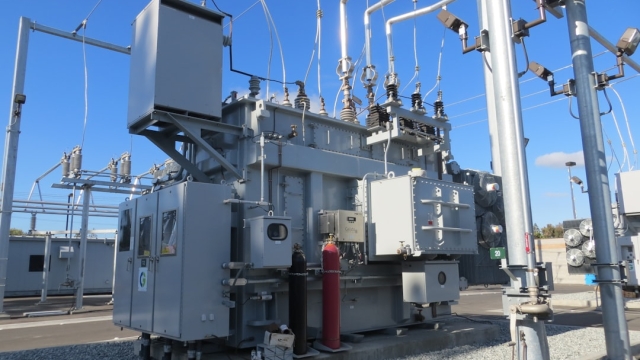Understanding Commercial Power Needs Key Considerations
Understanding the energy requirements of a business is crucial for efficient operations and sustainability. Every commercial entity has unique power demands, influenced by various factors such as the size of the operation, the nature of the business, equipment usage, and operational hours. By comprehensively assessing these commercial power needs, businesses can make informed decisions that enhance productivity while minimizing costs.
Understanding Commercial Power Needs: Key Considerations
When evaluating commercial power needs, several key considerations come into play. First and foremost is the type and scale of equipment utilized in daily operations. Heavy machinery. HVAC systems, and specialized equipment can significantly influence total energy consumption. Understanding the power requirements of each piece of equipment is essential for accurate assessment.
Another factor to consider is the operational hours of the business. Businesses that operate 24/7 generally require more robust power solutions than those with limited hours. Seasonal fluctuations in business activity can also impact power needs; for instance, retail businesses may experience higher energy demands during peak shopping seasons.
Additionally, businesses must consider the reliability of their power source. Interruptions in power supply can lead to operational downtime and financial losses. As such, planning for backup power solutions is a critical component of addressing commercial power needs effectively.
Types of Power Generation Solutions for Businesses
There are various power generation solutions available to meet the diverse needs of businesses. Each has its advantages and is suited to different applications.
Grid Power
Most businesses rely primarily on grid power supplied by local utilities. This option is often the most convenient and cost-effective for standard power needs. However, dependence on grid power can leave businesses vulnerable to outages, especially in areas prone to severe weather or infrastructure issues.
Backup Generators
For businesses that require uninterrupted power, backup generators are a vital investment. These generators can kick in during power outages, ensuring that operations continue smoothly. Diesel generators are particularly popular for their durability and efficiency. They can handle heavy loads and are available in various sizes to suit different power requirements.
Renewable Energy Solutions
Many businesses are increasingly turning to renewable energy sources, such as solar or wind power, to meet their commercial power needs. These solutions not only reduce dependence on fossil fuels but also lower operational costs in the long run. Implementing renewable energy may require initial investment in equipment and infrastructure, but the long-term savings and environmental benefits often outweigh these costs.
Choosing the Right Diesel Generator for Your Commercial Application
When it comes to selecting a diesel generator, several factors should be taken into account to ensure it meets the specific needs of the business.
Capacity
Capacity is one of the most critical considerations. The generator must be able to handle the total load of all essential equipment. It is advisable to calculate the total wattage required and choose a generator that can provide at least 20% more than this figure to accommodate unexpected surges in power demand.
Efficiency
Efficiency is another important factor, as it directly impacts fuel consumption and operational costs. Look for generators with high efficiency ratings and consider those equipped with advanced features for fuel management.
Maintenance
Regular maintenance is essential for ensuring the longevity and reliability of a diesel generator. Choose a generator from a reputable manufacturer that offers comprehensive warranty and service options. Regularly scheduled maintenance can prevent breakdowns and extend the life of the equipment.
Optimizing Energy Use and Ensuring Reliability
Once a business has assessed its commercial power needs and selected appropriate power generation solutions, it is essential to focus on optimizing energy use. Implementing energy-efficient practices, such as using LED lighting and energy-efficient appliances, can significantly reduce overall consumption.
Additionally, businesses should develop a comprehensive energy management plan that includes monitoring energy usage and setting benchmarks for efficiency. This proactive approach not only ensures reliability but also positions a business for long-term sustainability.
In summary, understanding commercial power needs is vital for any business aiming to operate efficiently and effectively. By carefully evaluating energy requirements, selecting appropriate power generation solutions, and implementing best practices for energy management, businesses can optimize their operations and enhance their bottom line.
For more information on meeting your commercial power needs, consider exploring a variety of solutions tailored to your specific requirements at Jetgenset.



